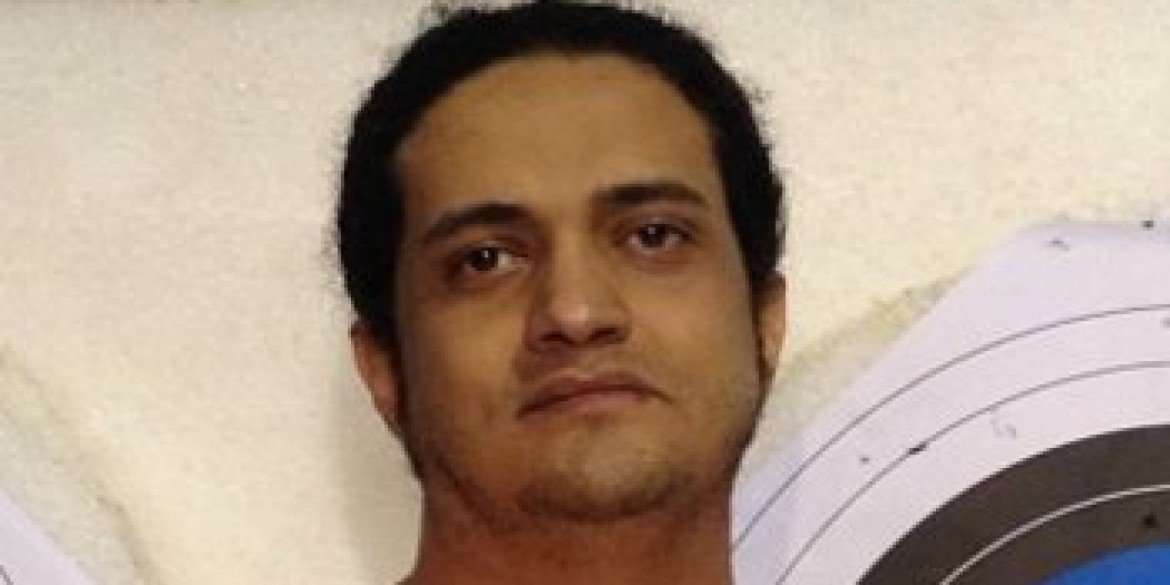Saudi Arabia
Ashraf Fayadh, a freedom poet
The international movement in favor of the Palestinian poet and artist sentenced to death is growing while he has been sentenced to death for being an "apostate" and for having "abandoned Islam"

At the beginning of the year 2014, 100 artists, intellectuals, writers and poets from the Arabic world signed a petition asking for his unconditional release. In the months following, many others denounced his detention.
But to no avail. Ashraf Fayadh remains in prison. And in the last weeks the Palestinian artist and poet has been sentenced to death for being an “apostate” and for having “abandoned Islam”.
His name joined the ones of those like the blogger Raif Badawi (recipient, last month, of the Sakharov award), sentenced to prison and flogging, and to that of the very young activist Nimr Baqir al-Nimr, arrested in 2012 and sentenced to death as well.
Fayadh, Badawi and al-Nimr are but the best known among the numerous detainees in prison for their opinions and their political views, who are still in their cells in Saudi Arabia, great ally of the Western world, a world engaged through the use of weapons and money to aid the Syrian “rebels”, ready to bring “democracy and freedom” in Damascus.
Many people, today, are taking action to advocate for Fayadh’s life. Nobody knows whether all these efforts will be successful. The international uprising, up until now, did not manage to free Badawi e al-Nimr.
Fayadh has been first arrested in Abha, at the end of a heated argument with another artist, by “mutates” agents, the religious police, because he allegedly uttered phrases against the morals and faith.
Soon after he made bail, he was arrested again with the charge of “promoting atheism” in his 2008 poetry collection titled “Instructions Within”.
Many now believe that Fayadh was actually arrested for having posted a video of a man publicly flogged in Abha. Be as it may, a lesser court, overturned the 2014 verdict sentencing Fayadh to four years in prison and 800 lashes, thereby sentencing him to death.
The poet has also been charged with the accusations coming from an Islamic scholar, who defined his poems “blasphemous” and dangerous because they could “influence other people into leaving Islam”.
Fayadh, had said, during his first trial, that he was sorry, thus receiving a lighter sentence compared to the current one requested by the district attorney’s office. During the appeal trial things went differently. This time, the judges did not even take into consideration the witnesses for the defence.
Below, one of the poems written by the poet sentenced to death:
Asylum: To stand at the end of a queue..
To be given a morsel of bread.
To stand!: Something your grandfather used to do.. Without knowing the reason why.
The Morsel?: You.
The homeland: A card to put in your wallet.
Money: Papers that carry images of Leaders.
The Photo: Your substitution pending your return.
And the Return: A mythological creature … from your grandmother’s tales.
End of the first lesson.
These verses hide a dangerous meaning, according to the judges of the Saudi court.
And in any event, in the Saud kingdom, literature has alwas been under suspicion because of its ability to open people’s consciences and lead citizens to express their dissent towards a social system under the strict control of the wahabite religios hyerarchies. In 2014, during the Book Fair, thousands of books were seized – especially those addressing women’s social standing – by hundreds of authors not in tune with the diktat of their faith.
Human Rights Watch has been applying pressure from countries all over the world, which could preven Fayadh from suffering from the same fate of the 150 people decapitated by sword in 2015 alone, because of the rulings of the Saudi judges.
Lately, the international community fears for the fate of lawyer Waleed Abulkhair, arrested and sentenced last year with the charge of “inciting public opinion”.
Abulkhair had been initially sentenced to five years in prison, a sentenced which at first had been suspended and later on, in a surprising turn of events, had turned for the worst when another court, specialized in “terrorism”, sentenced him at the beginning of 2015 to 15 ears in prison.
The iron fist of Saudi authorities clenched heavily during the “Arab Spring” and in its wake. Their fear, and that of the Monarchy, is that the youngest generations’ discontent may turn into public uprising and this has led to the use of force and repression towards political dissidents and activists of all kinds.
Originally published at http://ilmanifesto.info/ashraf-fayadh-poesia-di-liberta/ on 2015-11-25
